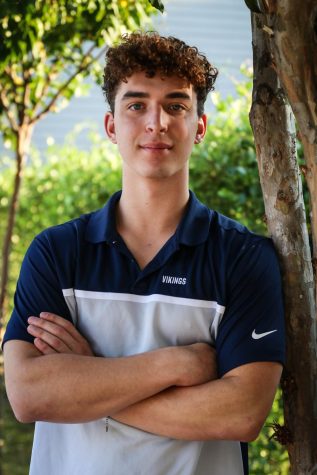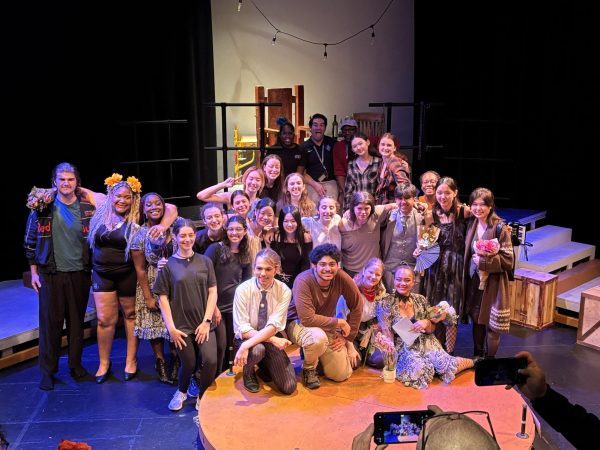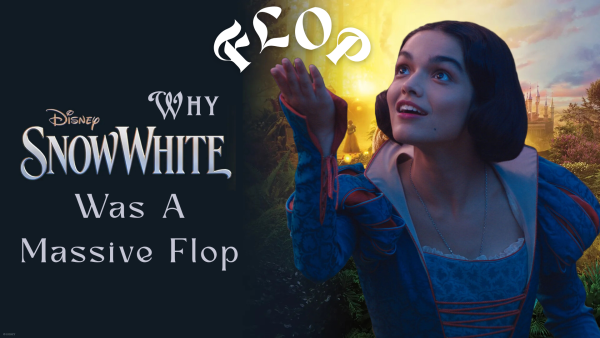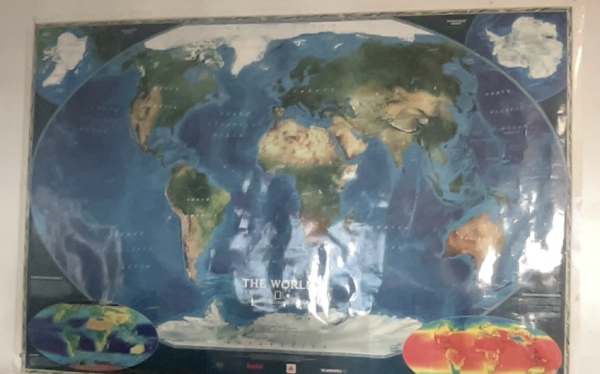War at Village

A Village student’s Ukraine flag
The most recent upsurge of the Russo-Ukrainian war began on February 24th, 2022. It has since claimed the lives of an estimated 8,100 civilians (Statista) and countless more Ukrainian and Russian soldiers. Human rights violations have plagued the conflict, taking Ukrainian soldiers, women and children as their victims. This feature explores how this war has been reflected in the thoughts, feelings and ideas of the students here at The Village School.
“Considering that we’re such an international school with people from all over Europe and all over the world, any kind of international conflict directly impacts the families, the friends and just in general lives of the people here” said high school sophomore Aryan Shah, a member of the Village Model United Nations team.
The Village School has both Russian and Ukrainian students. Naturally different students prefer to receive their news through different mediums. In recent years Instagram has become the most preferred news source for young people (BBC).
“I think the majority of the people like the majority of teenagers and younger, younger children have to use social media as the primary source for gathering information about the news. So I think that social media is probably the most prevalent way that people know about what’s going on in Ukraine right now” said Shah.
However, this does not mean that social media is the only way in which students receive their news.
“I’ve been keeping track of the conflicts through a bunch of American news outlets. And I’ve also been checking some Russian news outlets, whichever ones I can find and trying to get both perspectives, but I’m aware of what’s happening from the most recent developments. The Russians are pushing back on the Ukrainian defensive, and they’re taking land. That’s what I understand.” said Daniel Itkins, a high school senior, and member of Model United Nations Leadership.
Itkins is of the opinion that students here are not very aware of the conflict and its implications.
“I feel that students overlook the significance of the Ukrainian war. I believe that students don’t understand the reality and how much it (the conflict) really impacts the society that they live in. Because I feel as if this Ukrainian war could become the next World War III, and then it’s just a component in bringing the entire world to war”, said Itkins, “And people, students that are here at The Village School that are the future of the world, don’t realize that. They’re the ones that have the ability, and just the technology, and they have the opportunity to make that change, and prevent war from occurring.”
With the prevalence of news on social media, certain challenges arise when verifying and recognizing the validity of the information and stories consumed by the reader. “I think that it (social media) can be very dangerous in the sense that misinformation is so easily able to be spread through social media,” said Shah.
“I believe that social media plays a very significant role in how information is communicated, especially for individuals that rely solely on outlets on social media outlets, such as Instagram, to receive or tick tock to receive their news,” said Itkins. “Most of the news that is posted there is often not fact checked. It could be completely made up. And or it could be just propaganda. That’s and it spreads rapidly. What I’m saying is social media is not a reliable source whatsoever.”
Given that students may be misinformed or uninformed on the topic, it is also important to understand what role students feel the administration of the school should assume in providing information about the conflict. Some feel that the administration has not done enough, while others feel it is not their responsibility
“I believe that currently they (the administration) have not done enough in regards to telling, communicating, or discussing the reality of what’s happening in Ukraine here at school. Our classes are almost as if the information is suppressed or, or withheld from the people, because the teachers don’t want to get into a political discussion. But I firmly believe that these political discussions are how future leaders are made.” said Itkins.
“I don’t think it’s necessarily their (administration’s) place, or a duty that they should have, to communicate information about international conflict,” said Shah. “However, I do believe that there should be more classes offered about current events and we should be able to spread the information more easily, and promote certain teams like our Model UN team, or speech and debate team.”

Sevastian Oti is an introspective, curious, and spontaneous senior and this is his first year on Viking Media. Outside of school hours, he has an internship...





